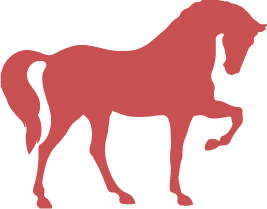4 TIPS TO OPTIMALLY PREPARE YOUR HORSE FOR COMPETITION AND HOT DAYS
Article Courtesy Cavalor The summer season is wonderful. Long evenings, plenty of competitions, and more time to enjoy horses and equestrian sport….
Free Delivery when you spend $49 or more. (Weight Limits Apply – view more)
 Dog
Dog

Shop Tuckers great range of dog food, health care & wellness products today. Delivered or Click & Collect.
 Cat
Cat

Tuckers has a great range of cat food, health care & litter products for your beloved cat. Shop now.
 Horse
Horse

Tuckers carry a huge range of food, supplements, health care, hoof care and grooming accessories. Shop now.
 Chook/Bird
Chook/Bird

Tuckers range of food, accessories & health care products will keep your chooks & birds happy and healthy.
 Small Animal
Small Animal

Shop food and health care products for your little mates @ Tuckers. Delivered or Click & Collect.
 Farm/Garden
Farm/Garden

Tuckers carry a wide range of sheep & cattle products, plus everything you’ll need around the farm or garden.
 Dog
Dog

Shop Tuckers great range of dog food, health care & wellness products today. Delivered or Click & Collect.
 Cat
Cat

Tuckers has a great range of cat food, health care & litter products for your beloved cat. Shop now.
 Horse
Horse

Tuckers carry a huge range of food, supplements, health care, hoof care and grooming accessories. Shop now.
 Chook/Bird
Chook/Bird

Tuckers range of food, accessories & health care products will keep your chooks & birds happy and healthy.
 Small Animal
Small Animal

Shop food and health care products for your little mates @ Tuckers. Delivered or Click & Collect.
 Farm/Garden
Farm/Garden

Tuckers carry a wide range of sheep & cattle products, plus everything you’ll need around the farm or garden.
Courtesy Kentucky Equine Research Staff

Researchers at Cornell University believe equine parvovirus-hepatitis virus (EqPV-H) causes poor performance in athletic horses, including racehorses.*
“Poor performance describes horses that simply are not living up to athletic expectations. Many health conditions can contribute to poor performance, including inflammatory airway disease, dynamic upper airway conditions such as dorsal displacement of the soft palate, or even tying-up,” explained Kathleen Crandell, Ph.D., a nutritionist for Kentucky Equine Research. Add EqPV-H to that list of possibilities.
Since researchers first identified the virus in 2018, genetic material (DNA) of EqPV-H virus has been found in between 7% and 37% of tested horses around the world. Experimental studies found that the virus has an affinity for the liver, resulting in subclinical or mild disease, meaning these horses show little to no sign of liver infection. However, infection may result in elevations in liver enzymes, such as gamma-glutamyl transferase (GGT), aspartate aminotransferase, and alkaline phosphatase.
Interestingly, about 37% of racehorses diagnosed with GGT syndrome tested positive for EqPV-H.
Despite being commonly found in horses, the relevance of EqPV-H in horses remains unclear. Should horse owners and trainers be concerned about horses that test positive for EqPV-H?
To gain additional information on this virus, Cornell researchers collected 191 liver samples from Thoroughbred racehorses from New York state. Total DNA was extracted from the liver samples and tested for the presence of EqPV-H DNA. Sections of liver samples that tested positive for EqPV-H DNA were examined microscopically to directly visualize the location of that viral DNA.
Of the 119 liver samples, 42 (22%) were positive for EqPV-H, which was similar to previously reported rates of infection. Viral DNA was subsequently found in 31 of those 42 liver samples evaluated microscopically, with the DNA found in necrotic (dead) areas of liver tissue in 11 of the 42 samples (26%).
“This means that naturally acquired EqPV-H infection appears to cause mild hepatitis with liver cell necrosis. The overall impact of this mild hepatitis on racehorse performance, however, needs further evaluation,” Crandell said.
As mentioned above, many causes of poor performance exist, potentially including poorly described conditions such as liver disease, EqPV-H, and GGT syndrome.
“Oxidative stress could play a role in poor performance, including GGT syndrome. Nutritional strategies can manage oxidative stress, such as supplementing the horse’s diet with an antioxidant such as Nano-Q10, which contains a highly available source of coenzyme Q10,” she recommended.
*Jager, M.C., J.E. Tomlinson, C.E. Henry, M.J. Fahey, and G.R. Van de Walle. 2022. Prevalence and pathology of equine parvovirus-hepatitis in racehorses from New York racetracks. Virology Journal 19(1):175.
Entire range - quick and secure delivery
Buy securely online and pickup at your local store
Call your local store and come on down to pickup
© 2026 Tuckers Pet & Produce.
